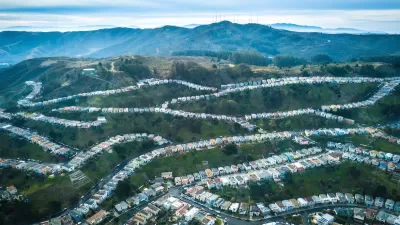A largely revenue-neutral carbon tax proposal, similar to the carbon tax in British Columbia which began in 2008, qualified for the November ballot in Washington. Environmentalists and Democrats, not Big Oil, may cause it's defeat.
The carbon tax measure, officially known as Initiative 732, the "Washington Carbon Emission Tax and Sales Tax Reduction," would enact four tax changes, according to sponsor Carbon Washington:
- Reduce the state sales tax by one full percentage point.
- Fund the Working Families Rebate to provide up to $1500 a year for 400,000 low-income working households.
- Effectively eliminate the business & occupation tax for manufacturers.
- Institute a carbon tax of $25 per metric ton CO2 on fossil fuels consumed in the state of Washington.
Note: Campaign leaders acknowledge a flaw that would "cut state tax collections by $900 million over four years," reported Jim Brunner for The Seattle Times.
"Initiative 732 is designed to move the state toward two important goals – fairer taxes and cleaner energy," according to campaign co-directors Duncan Clauson and Kyle Murphy. And therein lies the rub — it doesn't do what much of the state's environmental community wants.
For example, here's what the Northwest-based clean energy economy nonprofit, Climate Solutions, which has taken a "do not support postion," would like done with revenues:
- Invest the proceeds raised from putting a price on pollution into new technologies and projects that accelerate the growth of the clean energy economy. A price alone will not advance the clean energy economy fast enough to end our reliance on fossil fuels.
- Address the needs of those most impacted by fossil fuel pollution. Pollution sources like emissions from refineries and vehicles on highways impact the communities located closest to them. More often than not, these communities are low-income and communities of color, exposing already disadvantaged populations to more pollution.
The Sierra Club has taken the same "do not support" position for similar reasons. They add another point, the lack of a "cap" on emissions, which may now be moot due to the Department of Ecology's approval of the Clean Air Rule on Thursday which sets a carbon cap on large emitters.
The Northwest Progressive Institute and the Democratic Party are opposed to the initiative.
An alternative proposal [PDF] has been advanced by the Northwest Environmental Center and the Alliance for Jobs and Clean Energy. Rather than a revenue-neutral approach, it is based on "reduce and reinvest" and is more likely to please more of the state's environmental organizations and environmental and social justice groups. However, the group chose not to qualify it for the November ballot due to the presence of I-732.
One environmental group that is supporting the I-732 is the Audubon Washington.
"It means Audubon is breaking away from a huge group of environmental, labor and progressive groups in the Puget Sound region — a group that Audubon awkwardly still belongs to," reported columnist Danny Westneat for The Seattle Times.
That coalition has opposed Initiative 732 as a “Republican lite” effort that raises no money for various causes and may even blow a hole in the state budget.
Carbon Washington's Murphy "rejects the logic that the policy was crafted wholly to appeal to conservative interests, and instead argues that its revenue neutrality stems from a desire for economic fairness and simplicity — and to ensure taxes aren’t being increased on low-income families," reports Clayton Aldern for Crosscut.
Harvard economist N. Gregory Mankiw concurs. "The overall plan is progressive and revenue-neutral," he wrote in a New York Times column last year. "If passed, the initiative would yield a tax shift, not a tax increase."
Polling
"Recent polling shows I-732 trailing, or only leading by a slim margin, and many voters still haven’t made up their minds," adds Aldern, who goes into greater detail on polling results.
The ballot measure marks the first time a statewide carbon tax has gone before voters in the U.S. Should it lose, I suspect it won't be the last time.
Related on Planetizen:
- Washington Adopts 'First-of-its-Kind' Carbon Reduction Rule, September 18, 2016
- Editorial: A Compelling Case for a Carbon Tax, September 13, 2016
- Citizen's Carbon Tax Initiative Goes Before Washington State Senate, February 22, 2016
- Op-Ed: Carbon Pricing on Track in North America, January 21, 2016
- The British Columbia 'Tax Swap', July 6, 2012
Hat tip to Darrell Clarke
FULL STORY: Carbon tax initiative looks like a nail-biter

Depopulation Patterns Get Weird
A recent ranking of “declining” cities heavily features some of the most expensive cities in the country — including New York City and a half-dozen in the San Francisco Bay Area.

California Exodus: Population Drops Below 39 Million
Never mind the 40 million that demographers predicted the Golden State would reach by 2018. The state's population dipped below 39 million to 38.965 million last July, according to Census data released in March, the lowest since 2015.

Chicago to Turn High-Rise Offices into Housing
Four commercial buildings in the Chicago Loop have been approved for redevelopment into housing in a bid to revitalize the city’s downtown post-pandemic.

Google Maps Introduces New Transit, EV Features
It will now be easier to find electric car charging stations and transit options.

Ohio Lawmakers Propose Incentivizing Housing Production
A proposed bill would take a carrot approach to stimulating housing production through a grant program that would reward cities that implement pro-housing policies.

Chicago Awarded $2M Reconnecting Communities Grant
Community advocates say the city’s plan may not do enough to reverse the negative impacts of a major expressway.
City of Costa Mesa
Licking County
Barrett Planning Group LLC
HUD's Office of Policy Development and Research
Mpact Transit + Community
HUD's Office of Policy Development and Research
City of Universal City TX
ULI Northwest Arkansas
Town of Zionsville
Urban Design for Planners 1: Software Tools
This six-course series explores essential urban design concepts using open source software and equips planners with the tools they need to participate fully in the urban design process.
Planning for Universal Design
Learn the tools for implementing Universal Design in planning regulations.
























